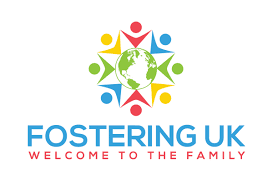Fostering regulations UK
In the UK, foster parents are extremely important in giving vulnerable kids care and assistance. There are restrictions and requirements that foster parents must follow in order to protect the safety, well-being, and best interests of these kids. The many limitations imposed on foster parents in the UK will be discussed in this article, along with their responsibilities and obligations.
Foster parents are prohibited from using physical punishment or any other form of physical discipline on the children in their care, which is one of the fundamental rules governing foster care. As a result, foster parents are not permitted to beat, slap, spank, or perform any other physical acts that can endanger or distress the child. Positive disciplining methods are encouraged, and a secure and supportive environment is created for the kids.
Foster parents are strongly forbidden from abusing, neglecting, or otherwise mistreating their children in any way. This involves disregarding the child's fundamental necessities, such as food, housing, clothes, and medical attention, as well as physical, emotional, or sexual abuse. Foster parents have a responsibility to create a safe, secure, and loving environment for the children in their care.
The fact that foster parents are prohibited from discriminating against the children in their custody on the basis of their race, ethnicity, religion, gender, sexual orientation, or any other protected trait is a further crucial restriction. Every kid should feel cherished and appreciated in the inclusive, accepting atmosphere that fosters parents are intended to establish.
Another crucial component of foster care is respecting the kids' privacy and confidentiality. Foster parents shouldn't violate the child's privacy by disclosing their private communications, belongings, or personal information without the child's informed consent or without a court order. To develop a sense of security and stability for the kid, it is essential to uphold trust and confidentiality within the foster family.
Without legal authorization, foster parents are not allowed to take a kid out of the pre-arranged placement or change their living arrangements for them. Any modifications to the child's placement must go via the proper channels, such as the fostering agency or local authorities, for discussion and approval. This guarantees that decisions pertaining to the child's welfare are made in accordance with the law and in the child's best interests.
The permitted capacity for their foster home must also be followed by foster parents. They shouldn't have more youngsters in their care than they are permitted to. This restriction is in place to guarantee that each child in a foster family receives the proper attention, support, and care.
Furthermore, without adhering to the proper legal procedures and getting approval from the necessary authorities, foster parents are not permitted to change the child's legal status. This includes requesting parental rights or submitting an adoption application. To protect the kid's rights and well-being, the legal status of the child should only be changed in accordance with the correct legal procedures.
Unless there are extraordinary circumstances or specific issues that have been brought to the attention of the fostering agency or local authorities, foster parents are responsible for facilitating and encouraging the child's contact with their birth family or other important people in their life. As retaining contact with the child's birth family may be essential for the child's well-being and identity development, foster parents should not restrict or refuse visitation rights.
It is significant to highlight that the fostering agency or local government provides guidance, training, and continuous assistance to foster parents to make sure they are aware of their duties and obligations. They are urged to take part in training courses that will provide them with the information and abilities needed to give the kids the care they need. Foster parents should always act in the child's best interests and follow the rules, laws, and regulations established by the appropriate authorities.
In order to protect the security, welfare, and best interests of the children entrusted to their care, foster parents in the UK are subject to a number of restrictions and duties. The prohibitions include refraining from corporal punishment, abuse, neglect, discrimination, invasion of the child's privacy, unpermitted removal of the kid, exceeding permitted capacity, changing the child's legal status without following the correct processes, and limiting visitation rights. Foster parents help to create a secure, nurturing, and encouraging environment where children can flourish and realise their full potential by abiding by these rules and carrying out their obligations. The foster care system depends on the devotion and commitment of foster parents who put the welfare and best interests of the kids in their care first, ultimately changing the lives of those kids for the better.




Comments
Post a Comment